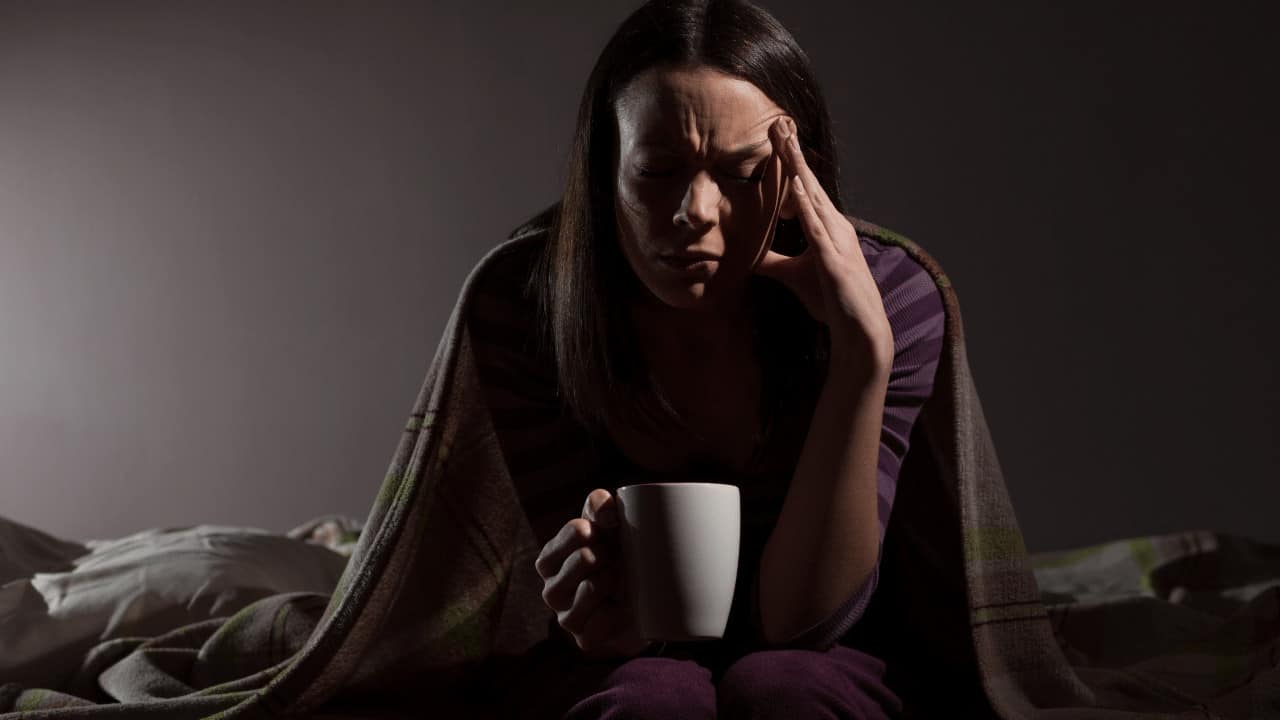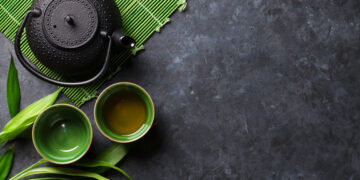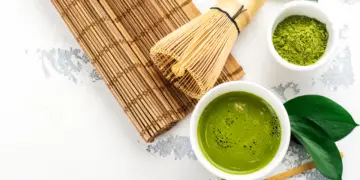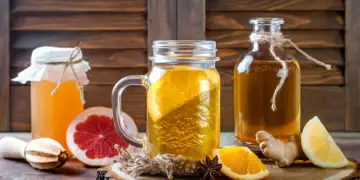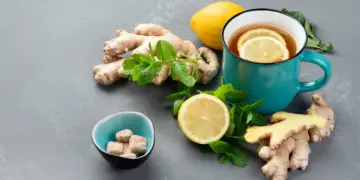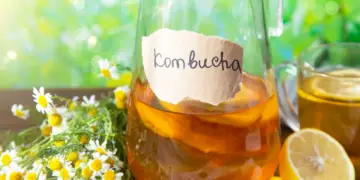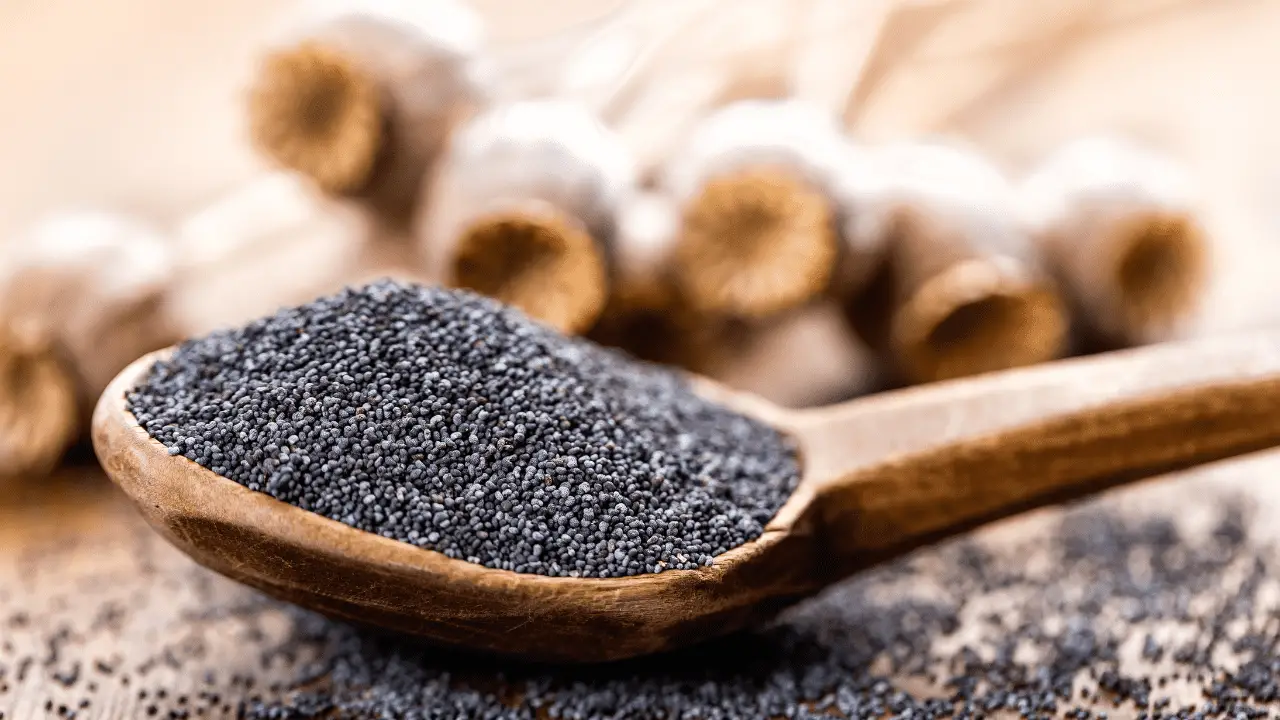Hibiscus is one of the most popular flowers used as herbal tea. Given how many health benefits it has, we can understand why. Not only does this flower enhance the beauty of your garden, but it also has many health benefits. It is very potent at improving your immune system and cardiac health, lowering your blood pressure, and promoting weight loss.
But does it affect your sleep in any way? Does it cause insomnia like regular tea, or does it improve sleep?
Hibiscus tea can help you fall asleep and give you a good night’s sleep. Unlike traditional teas, hibiscus tea is caffeine-free and contains methanol, a compound know for its sedative properties and its ability to reduce anxiety.
If you want to know more about how this tea helps you fall asleep, read on as we explain all below.
- Does Hibiscus Tea Cause Insomnia?
- Does Hibiscus Tea Make You Sleepy?
- Can I Drink Hibiscus Tea Everyday?
- When is the Best Time to Drink Hibiscus Tea?
- How To Prepare Hibiscus Tea
- What Are Some Health Benefits of Hibiscus Tea?
- Side Effects & Drug Interaction With Hibiscus Tea
- Alternatives That May Help With Insomnia
- Conclusion
Does Hibiscus Tea Cause Insomnia?
No, Hibiscus tea does not cause insomnia. It does the exact opposite– it helps you get better sleep.
Hibiscus has many nutritional components, one of which is Methanol. This compound exhibits both sedative and anxiolytic effects in animal studies. Additionally, Hibiscus tea has been shown to have mild CNS-depressant activity and muscle relaxation properties. All of which directly and indirectly promote better sleep.
Some studies have suggested that daily cups of Hibiscus tea for a few days can significantly impact insomnia. This means long-term use will yield even better results.
Moreover, Hibiscus tea is composed of hibiscus flowers (petals and sepals). Herbal teas usually don’t contain traditional tea’s properties from Camellia sinensis. Unlike hibiscus, regular tea and coffee can affect sleep because of the presence of caffeine.
Does Hibiscus Tea Make You Sleepy?
Yes, Hibiscus tea can make you feel sleepy. In more precise terms, the tea helps your body go into a calm and meditative state, enabling you to fall asleep.
Many caffeine-free teas can make you fall asleep, and Hibiscus tea is just one of them. How does that happen? It is because it contains a chemical called L-theanine that gives that relaxing feeling after a cup. Since Hibiscus tea also has anxiolytic or anti-anxiety effects, it can help prolong sleeping time.
They also contain chemicals, cyanidin and quercetin, that boost serotonin and dopamine in the body. These are often called “happy hormones.” The increase in serotonergic and dopaminergic processes can ultimately help sleep patterns and give you uninterrupted sleep. According to this study, hibiscus tea can even be a natural antidepressant.
Can I Drink Hibiscus Tea Everyday?
Though hibiscus tea has many health benefits, drinking too much every day can affect your liver. This drink could damage the liver at high doses. It could also be inadvisable to drink every day if you cannot have your blood pressure get too low. Regular consumption of Hibiscus tea could benefit people with hypertension, but not for people who need to maintain particular blood sugar levels.
Regardless, a cup or two can be harmless. But before you add this to your daily routine, consult a medical professional.
When is the Best Time to Drink Hibiscus Tea?
Some teas are perfect for your morning cup. Some teas are drunk best before going to sleep. Depending on their qualities, different teas could be suitable for various times. Since Hibiscus tea has qualities that can relax and help you sleep, it is one of the drinks good for sleep. It is best to drink this tea right before going to bed.
How To Prepare Hibiscus Tea
Hibiscus tea is a tart, pink-red colored tea. If you have access to a Hibiscus plant, you can use fresh flower petals. Steep it in hot water for 10-15 minutes. You can alternatively buy tea bags too.
Please remember that not all hibiscus flowers are edible. The only edible species are Hibiscus sabdariffa and Hibiscus acetosella. Make sure to check which species of hibiscus you are plucking or buying.
You can mix this with other herbs for insomnia to get an added benefit. Add some sugar or honey to neutralize the tartness a little bit. Take 2-3 cups of Hibiscus tea every day to get the maximum benefit.
What Are Some Health Benefits of Hibiscus Tea?
Helps with High Blood Pressure
Hibiscus tea is an excellent option if you are hypertensive with insomnia as it is a well-known natural anti-hypertensive remedy. Research has demonstrated that hibiscus significantly reduces systolic and diastolic blood pressure. This study concludes that hibiscus is as effective as Captopril, an anti-hypertensive drug known to reduce high blood pressure.
If you have hypertension and insomnia, your hypertension can worsen more quickly than those who sleep well. Sleep is essential for the overall maintenance of our bodies. Our body regenerates and re-energizes when we sleep. Not sleeping enough puts us at a higher risk of developing many lifestyle and mental illnesses.
Important Note: Although there is a positive correlation between drinking hibiscus twice a day and a reduction in blood pressure, we are not advising that you quit taking your anti-hypertensive medications. Always consult with your physician and or doctor before any changes. That said a few cups of Hibiscus tea and lifestyle modification can help manage both insomnia and hypertension. If you have chronic insomnia, it is recommended that you get your blood pressure checked as both are linked with each other.
It is a Very Good Antioxidant
Besides inducing sleep and lowering blood pressure, Hibiscus tea is also an excellent antioxidant source, rich in tannin and anthocyanin.
Antioxidants help neutralize the harmful free radicals produced in our bodies due to metabolism. Free radicals are associated with many conditions like cancer, bone degeneration, and even premature aging. Therefore, a balance between free radicals and antioxidants is crucial for a healthy body.
Also, Hibiscus tea has antibacterial activity against many harmful food-borne bacteria like Salmonella and Staphylococcus.
Reduces Harmful Cholesterol
Research has shown that drinking Hibiscus tea regularly can help support a good lipid profile. A study comprising 60 diabetic patients concluded that drinking Hibiscus tea twice a day for 30 days significantly increases the HDL cholesterol. HDL is cardioprotective cholesterol and reduces the formation of atherosclerosis. It also reduced the level of total cholesterol, triglycerides, and LDL.
So if you wish to improve your overall cardiac health, this might help.
Can Aid in Weight Loss
Hibiscus tea is proven to help with preventing obesity, reducing abdominal fat, and serum-free fatty acids. So, if you are on a weight loss journey, hibiscus might be an excellent addition to your diet.
Good For Liver Health
Not only does hibiscus tea prevent obesity and serum-free fatty acids, but it also prevents fat accumulation in the liver. Fatty liver is a sign of liver injury and most commonly results from drinking too much alcohol. Studies have shown that Hibiscus tea helps prevent and improve liver status.
If you are someone who reaches for a wine glass a bit too often, detoxing your liver with Hibiscus tea would be somewhat helpful.
Good For Women’s Health
Hibiscus tea exhibits a wide range of effects in women, ranging from managing menstrual cramps, menopausal symptoms, and even inducing periods. Please note that it’s not safe to use during pregnancy, so avoid it if you are pregnant.
Improves Digestion
The tea has much of the same qualities as drinking water. So regular drink consumption can help your bowel movements, prevent constipation, and get rid of your stomach problems. Research has shown that it is also a natural diuretic, which helps promote good digestive health.
Can be a Replacement for Sugary Drinks
If you have a sweet tooth and constantly reaching for sugary drinks like sodas, you can have a healthier option with Hibiscus tea. The tea has a fruity flavor profile, and you can add sugar or honey to satisfy your cravings for sweets.
Side Effects & Drug Interaction With Hibiscus Tea
Hibiscus tea interacts with hydrochlorothiazide, a diuretic used to manage blood pressure. So if you have hypertension and are currently on hydrochlorothiazide, avoid Hibiscus tea.
Hibiscus has also been shown to inhibit the effectiveness of acetaminophen and chloroquine. So you should avoid frequently drinking Hibiscus tea with these medications.
Hibiscus has natural contraceptive action, so this is not the ideal tea for you if you are trying to conceive. It is also not safe for pregnant women to drink Hibiscus tea. So if you are pregnant, please avoid this tea.
A very high dose of Hibiscus tea (>300mg/day) is linked with worsening gout and liver toxicity. If you have advanced liver disease, avoid drinking this too. If you have gout, be sure to keep your intake at a moderate level.
Alternatives That May Help With Insomnia
Lavender
Lavender is one of the most popular herbs that is used to induce sleep. Studies support this widespread practice of using lavender for sleep. According to research, lavender is more efficient at inducing sleep than practicing sleep hygiene alone. Sleep hygiene is a must if you have sleep issues, but adding lavender, especially in aromatherapy, will enhance the result.
Chamomile
This is yet another popular herb that helps with insomnia. Either through tea or tablets, oral consumption of chamomile is a great alternative to Hibiscus tea.
Magnolia Bark
Magnolia bark is a Chinese herb. It is derived from the bark of Magnolia Officinalis. Traditionally it has been used in Chinese medicine to treat asthma, anxiety, depression, etc. But recent studies have revealed that it is very potent at managing sleep disturbance. To take it to the next level, add it with your Hibiscus tea.
Valerian Root
A native of Asia and Europe, this herb has been used to induce sleep for centuries. It is backed by science regarding its efficiency in promoting sleep. It reduces the time required to fall asleep and improves both the quality and length of sleep.
Melatonin And Magnesium
Aside from these, you can try melatonin and magnesium supplements to improve your sleep. Melatonin is our natural sleep hormone. Studies have observed that melatonin supplements help patients with insomnia fall asleep quickly. Magnesium is one of the essential minerals of our body, and it is also associated with promoting good sleep.
Conclusion
Hibiscus tea could be a great solution for your sleepless nights with its sedative and anxiolytic effects. If you have occasional sleep issues, regular tea consumption can help. You can also mix sleep-promoting herbs in your tea to enhance results.
Although it promotes many health benefits to the body, people with specific conditions like liver problems, gout, and pregnant people should steer clear of the drink. Or you could limit your consumption and drink this tea in moderation.
If you have severe insomnia, please consult your doctor. A mixture of herbs will most likely not be sufficient. A medical professional is equipped with the diagnostic tools to get to the reason behind your insomnia.

